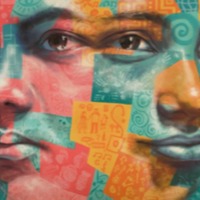
I am a single mother of five. Before I first travelled to work abroad, I operated a beauty salon and sold second-hand clothes. The money was not enough to take care of my children. Through my friend’s sister I got a housekeeping job in Saudi Arabia whose proposed salary was very attractive. I was treated well for the first three months.
The next few months were terrifying. My employer became physically abusive and salary payments stopped. He constantly threatened to have me arrested would I tell anyone what was going on. After six months, I couldn’t take it anymore. One day I walked into the street in the hope that I would get help. Some police officers spotted me. They made a concerted effort to help me return to Kenya. That was my first trafficking ordeal.
Back in Kenya, I still needed resources for the sake of my children. Money was never enough and I struggled to put food on the table, let alone send my children to school. But I wanted them to have a better life, so I tried working abroad for two more times. After all, it had to work out eventually. I went to Qatar and Libya. Both times I was mistreated and never paid. In Qatar I was promised a position in a hotel, only to end up as a house help. In Libya, i was made to work in four different houses without pay. After my last job, I was simply driven to the Kenyan Embassy and thrown out of the car. At the Embassy, I received help from the International Organization for Migration who referred me to HAART Kenya. In 2014, I finally returned to Kenya.
At the airport, I was received by HAART Kenya. HAART Kenya recognised my experience as a common human trafficking situation and proposed to help me get out of the vicious cycle. I received counselling sessions and they paid my children’s’ school fees for three years. I slowly got back on my feet. At the end of my reintegration programme, HAART offered financial support to start a salon so that I could become fully financially independent. The salon was doing really well and I managed to support and school all my children.
Then the pandemic hit and people, including my regular clients, started avoiding public and crowded places. I don’t know how to feed my children and pay rent for our house and my business premises. This is why I turned to HAART for temporary financial support. My only hope is that this pandemic ends sooner rather than later, before I lose everything again.
Narrative provided by HAART Kenya









